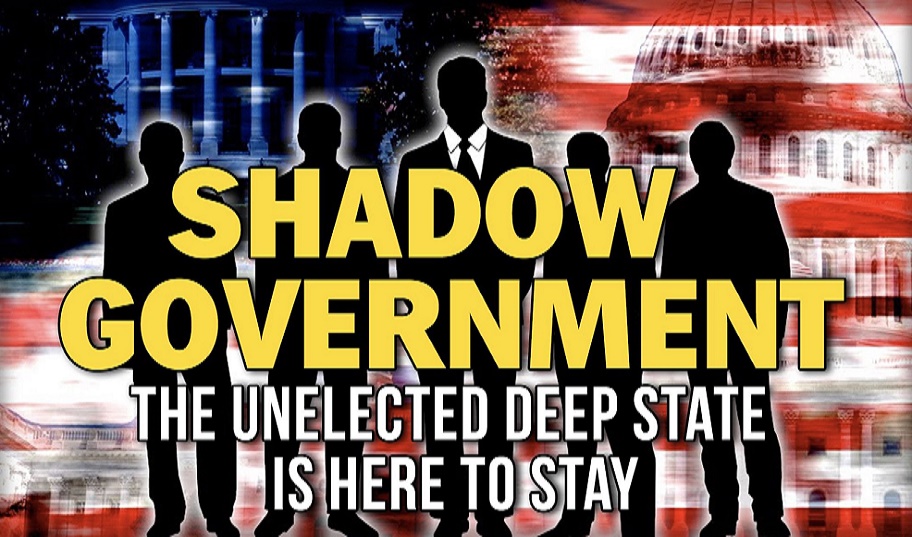Trump’s ‘America First’ Agenda: Foreign and Domestic Spies Victimize Americans and US Economy
During the last presidential election cycle, a man named Julian Assange single-handedly alerted a large number of American voters about the secretive, devious and hypocritical goings-on at the Democratic National Committee headquarters and their connections to the Hillary Clinton for President campaign and members of the so-called mainstream news media. The damage done to the Democratic Party as a result of the leaked information may never be fully gauged.
Instead of looking at cyber security considerations at the DNC — a political party that’s not part of the U.S. government — Democrats in both houses of Congress prefer to make wildly absurd accusations about President Donald Trump, Russian President Vladimir Putin, and anyone else they can drudge up in order to portray themselves as victims. Also, instead of asking the appropriate committees in the House and Senate to probe the nation’s vulnerability to foreign espionage — especially cyber espionage — the Democrats wish to create an ad hoc or select committee to investigate the alleged cyber crimes perpetrated against their own political party.
A Complex Threat By Use of Sophisticated Spy Tradecraft

As President Trump is finding out firsthand, the foreign intelligence threat within the United States is far more complex than it has ever been historically. The threat is increasingly asymmetrical insofar as it comes not only from traditional foreign intelligence services but also from nontraditional, non-state actors who operate from decentralized organizations.
Intelligence collection is no longer limited to classified national defense information but now includes targeting of the elements of national power, including our national economic interests. Moreover, foreign intelligence tradecraft is increasingly sophisticated and takes full advantage of advances in communications security and the general openness of US society.
In short, the foreign intelligence threat is more challenging than ever. In the fall of 2003, the Foreign Counterintelligence Program had investigations involving dozens of countries that focused on hundreds of known or suspected intelligence officers who were assigned to enter or travel within the United States. These investigations spanned all 56 field offices.
In order to meet these challenges, the Foreign Counterintelligence Program is being redesigned to become more nationally focused and directed. Through a more centralized program, the FBI will ensure its ability to establish priorities, be more proactive, and better engage other intelligence community agencies so that cooperation in important cases is immediate and seamless.
A centralized program will also ensure that infrastructure issues will be consistently addressed and coordinated in order to ensure workforce expertise, that staffing matches the articulated foreign intelligence threat, and that a sufficiently broad and reliable intelligence base is developed. From this foundation, the Foreign Counterintelligence Program will be positioned to achieve its strategic objectives and ultimately reach its goal to prevent harm to the United States through foreign intelligence activity inimical to US interests, claim some experts.
In just the past year, the Foreign Counterintelligence Program has been invigorated by the introduction of a new and innovative National Strategy for Counterintelligence and a program plan, both of which are proactive in emphasis. At the same time, additional resources were introduced to the program. To enhance counterintelligence workforce expertise, a new four-week Counterintelligence Operations course was developed.
All special agents assigned to the Counterintelligence Program are required to successfully complete this course. Computer-based distance learning courses are  also available to all personnel on a variety of counterintelligence topics. A counterintelligence training course for midlevel and executive managers was also initiated, covering topics in both the tactical and strategic areas of counterintelligence management.
also available to all personnel on a variety of counterintelligence topics. A counterintelligence training course for midlevel and executive managers was also initiated, covering topics in both the tactical and strategic areas of counterintelligence management.
The FBI plays an essential role in the US government’s counterintelligence efforts and has the responsibility to produce domestic foreign intelligence in support of other members of the intelligence community.
The FBI also has the responsibility to oversee the integration of domestic law enforcement and intelligence efforts to address intelligence threats in support of Director of Central Intelligence imperatives. The counterintelligence strategy involves centrally managed, proactive, and nationally directed initiatives, with prioritized and strategic objectives that support DCI imperatives, overseen by experienced headquarters managers.
Success for the Foreign Counterintelligence Program will be reflected in the extent to which the FBI agents are able to: identify the objectives, the assets, and the operations of foreign intelligence services operating in the United States; disrupt the operations of those foreign intelligence services; and change the behavior of targeted institutions and individuals to minimize opportunities for their exploitation.
Government support of critical national research and development initiatives in a large number of agencies and involving thousands of government contractors must be protected. Compromise of these initiatives by those hostile to the United States would do irreparable harm. The FBI must effectively meet its responsibility to assess the threat against those projects and, with other Intelligence Community agencies, initiate operations to counter the threat.
Critical National Assets are any information, policies, plans, technologies, or industries that, if stolen, modified, or manipulated by an adversary would seriously threaten US national or economic security. The FBI has a major role in identifying threats to Critical National Assets and assessing their overall vulnerability, especially in the areas of economic espionage, academic research, and private sector research and development.
As arguably the remaining world superpower, the United States is targeted from nearly every corner of the globe. The FBI will focus its counterintelligence resources on those countries and non-state actors having the greatest potential to harm US interests, and will work to gain a greater understanding of the threats they pose. Specifically, the FBI will examine threats related to terrorism, espionage, weapons proliferation, national infrastructure, US government perception management, and foreign intelligence activities, according to intelligence experts.
Sources: Federal Bureau of Investigation, National Security Institute, National Association of Chiefs of Police, American Society for Industrial Security


